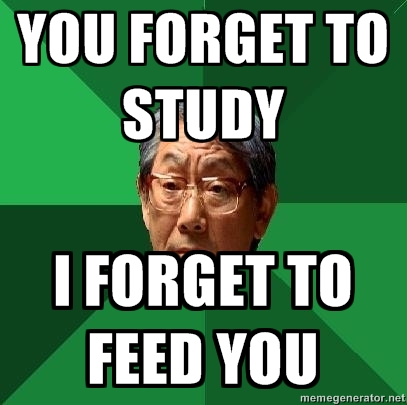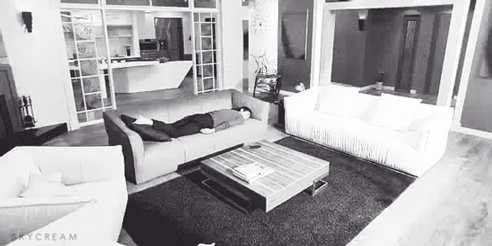For around a
fortnight now, I have been leaving little pedagogical pebbles on my Twitter
feed about my interest in Herbert Kohl, and now – in the spirit of Hansel and
Gretel – I am retracing my steps, shoving my pebbles back in my thought sack,
and have reminded myself to share Kohl with all (both) of my readers.
I picked up ‘“IWon’t Learn From You” And Other Thoughts on Creative Maladjustment’ from Skoob
Books –the best bookshop in London I would say – and his title essay is here
for you loyal readers to immerse yourself in. His title essay really piqued my
interest – the idea of active not-learning, and on the difficulties on actively
‘not-learning’ certain forms of knowing or being. For the following weeks up
until the (glorious) last day of term, I began viewing one of my pupils –
Imran, let’s say – as someone who is actively not-learning. He fits the bill of
being perfectly capable of doing the work without much strain, but he goes out
of his way to disrupt what I am doing and to distract others. He constantly
asks to go to Set 2 instead of his Assessment-Ordained home in Set 1. Using
Herb Kohl’s idea has immediately equipped me with a new way of thinking about
Imran’s oppositional stance, and this has in turn left me with new strategies.
In the
spirit of confession, my strategies with Imran have so far involved what I
refer to as the ‘Two PTFOOHs’ – Praise The Fuck Out Of Him or Punish The Fuck
Out Of Him. This rebel left the room glittering with gold stars on a Monday,
with a detention notice on Tuesday, with a Merit Award on Wednesday, led out by
SLT on Thursday and with a victorious smile on a Friday. His behaviours didn’t change,
just my manic response to them.
Having read
Kohl’s ideas on not-learning, I approached Imran very differently and sought to
break down the barrier with him a bit more. With other kids, I am blissfully
informal which has built a strong rapport and improved learning relationships,
but with Imran – and the reputation that precedes him – I felt it too risky to
throw away my metaphorical tricorn, and drop the teacher role. But when I
did...
“You don’t
really like Maths in here do you Imran?”
“No.”
“Why?”
“Boring.”
“What would
make it more fun.”
“I don’t
want a partner.”
BOOM!
Perhaps a reason for Imran’s not-learning is my teaching style of intense
partner talk and collaboration. Imran is notable for his obscenely-accurate
mental calculation – like Matilda, he can calculate HTU x HTU in his head,
which is remarkable. His problem is not so much the maths – maybe – but the way
in which my classroom set up, and that that the school promotes, goes against
his particular lonewolf character. He is the one ‘badboy’ with the notoriously
not-to-be-messed-with family credentials, in a class full of obedient ‘I do 5
hours of tuition a week’ milksops, progeny of the aspirational involved parents.
The lens of
not-learning is not only an accurate interpretation of certain children’s
attitudes, but it is also a fantastic reflective tool.
More
recently, I have read his short essay in the same collection, titled ‘Creative
Maladjustment’. This idea seems incredibly timely for those of us who would
like to be good teachers for our children, although the climate of schooling
has been infiltrated by the faceless spectre of performance and accountability.
‘Creative
maladjustment’ can be seen as a framework for reconciling our attachment to the
moral and compassionate heart of learning relationships with the torrent of
numerical shite we need to wade through daily to avoid being kicked out of our
jobs.
When it is impossible
to remain in harmony with one’s environment without giving up deeply held moral
values, creative maladjustment becomes a sane alternative to giving up
altogether. Creative maladjustment consists of breaking social patterns that
are morally reprehensible, taking conscious control of one’s place in the
environment, and readjusting the world one lives in based on personal integrity
and honesty – that is it consists of learning to survive with minimal moral and
personal compromise in a thoroughly compromised world and of not being afraid
of planned and willed conflict, if necessary.
Kohl
outlines how not all maladjustment is creative. For an NQT to pipe up in an
INSET meeting and denigrate the practices of the school is not going to create
anything other than another NEET in the job centre. Maladjustment is not simply
rule-breaking, but it is rule-breaking with the nuanced view from within a
system. It is the playing of a game from the position of one who not only know
the rules and expectations, but one who might just as easily be the one
expected to enforce them. For a maladjustment to be creative, it often needs to
be in the form of discrete alterations to the life of the classroom, oriented towards
the betterment of the children’s lives.
Thinking of
creative maladjustment acknowledges the deep irrationality that has enveloped
the professional life of the teacher – the box ticking, the impulsion to push
the children through meaningless hoops designed only to assess the school’s
performance, the curricular imperative to teach them pointless facts – and it
also acknowledges the sad truth that teachers lack agency at a structural
level. For all of Gove’s sham consultations, we have no say in what is expected
to go on in our classrooms. Creative maladjustments are those devious little
short cuts, the little nuggets handed to children by teachers who do not want
to get fired, but equally, they don’t want to be Wishaw’s moll in their own
classroom.
My examples
might not be as lucid as Kohl’s, which I’ll not replicate here, but they
illustrate the same point. One field of school life which I struggle to
reconcile with my beliefs on education is the extent to which kids are encouraged
to view themselves and each other in terms of their levels. It befit to school
culture, with its strict setting and targeted assessment, for children to have
exams at the forefront of their imaginations. The children beg to be tested and
not because they want to improve themselves or identify areas to work on – they
want to be tested because they want to know if they are intelligent.
When
administering a (compulsory) test in Year 4, I always make sure to give the
child a seemingly counter-intuitive lecture about precisely why tests are
important.
“Tests are
not you. Tests are not your intelligence. Tests are not the be all and end all.
Tests are important though, but only because some powerful people think they
are important. It is good to do well in tests but they prove you can do tests.
I know what you are like as a learner, I know if you are working hard, I know
if you are struggling. Do your best, but don’t worry because tests aren’t
learning.”
As a
creative maladjustment this works because children still are sitting their
tests and coming out with strong levels, and I am still in there administering
a test which will be used by the Overlords to determine my worth as a human
being. The maladjustment is the interruption in the narrative of ‘Tests are
everything’, which is routinely used to push and motivate children. When an 8
year old glazes over when you praise them for their effort, knowledge and
ability until you quantify that with “And you are a 4b”, there is a moral
wrongness in the system. That 4b will never be the seed for a love of
knowledge, and it will never impel them on a lifelong journey of learning.
One final
example, although facetious, is nonetheless valid. Bonnie Tyler as creative
maladjustment...
I find it
deeply unnatural, irrational and illogical that my school forces silence on us
all – my children and me – for so much of the day. The whistle blows and they
walk silently to their line. They line up in silence. I inspect their line in
silence. We walk in in silence. They get their reading books and read in
silence. I do the register in silence. Then they go to their first lesson, in
their academic sets for Maths.
What is this
meant to achieve? I like to bash Ofsted as much as the next teacher, but no
Ofsted inspector would be impressed by
this surely? It is like a scene from some Victorian horror film, all these
blankfaced young drones skiffling about.
Creative
maladjustment – weekly Bonnie. The children come in and find ‘Bonnie Day’
written on the board, which they silently acknowledge. I register them, then
put ‘I Need a Hero’ on Youtube. We watch, we laugh, we sing along. We talk
about how much we love ‘I Need a Hero’, they chat to me if they have stuff to
say, and I send them on their way to Maths with a smile.
If
management came in they would be like
Completely
shortcircuited, and wondering precisely what the fuck is wrong with me.
But as a
class, we know that Bonnie Tyler day is our own small ritual of interaction;
the necessary silence of 4 days is legitimated by our appreciation of the
powerful Welsh songstress. It opens up a space small enough that we don’t get
in trouble, but big enough for us all to know that ‘Yes, we are rebelling’ ‘Yes,
we are a unit’ ‘Yes, we are having a bit of fun’ and ‘Yes, we are getting to
know each other’.
We should
all read Kohl, and here is a final word from him.
The next
steps in creative maladjustment are more difficult. They involve reaching out
to other teachers and to the community the school serves, engaging others in
the struggle to create decent and effective schools, becoming a leader in our
own school and community, and taking responsibility for that role.
Let’s do it.













